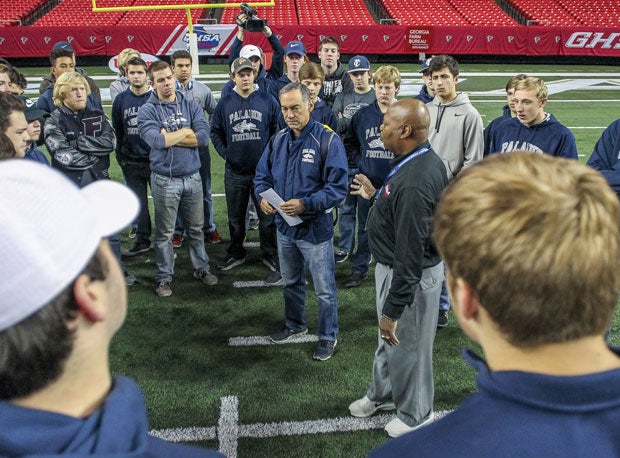Video: Parent Meeting
Whether it's with parents or a one-on-one meeting with players after the season, communication is key to a successful program.
Thanks to the dictionary we understand that a period of "debriefing" originated in the military. This type of debriefing "is used to receive information from a pilot or soldier after a mission, and to instruct the individual as to what information can be released to the public and what information is classified."
One-on-one debriefing with your players has some similarities to what the military does. You, your staff and your student-athletes have spent a lot of time together this past season, dating all the way back to when "off season" workouts began. Meeting one on one with each of your players is a great way to receive information about your program, to understand what was good, bad and ugly. This meeting gives your players a voice and a platform to speak about the mission which has just been completed.

Player meetings, especially one-on-one meeting after the season are crucial to a healthy program.
Photo by Cecil Copeland
It takes time, especially if your varsity team has 50-60 players. If you have 60 players, and devote just 15 minutes per meeting, you are looking at 15 hours of time. But this time is valuable for the future of your program. You must see it as an investment. This one on one time is a great way for the head coach to continue to build and maintain strong and effective relationships with his players.
There are several goals for these one on one meetings. First and foremost, it is just to listen to the players talk about their year. Sometimes it is surprising to hear what players want to share with you. One year, I had a player share with me that he just didn't love football anymore and was going to quit. I was blown away. The kid, who was a two-way starter, did not show on ounce of this during the entire season. Just sit and listen, ask the player a leading question like: "How did this season go for you?" And then just listen.
Another goal is to make sure that our mission as a program is still intact. Did the staff and I do a good job in fulfilling our mission? I ask our players to give examples of how we fulfilled our mission. If players are not able to readily give you some answers, than you must really think about if you and your staff did a good job on that mission statement. Did you put winning before your mission? Or did you remain focused on your mission as a staff?
After evaluating this season with the player, both his personal goals and the team's goals, it's important to wrap up the meeting by looking forward. For the seniors, the meeting turns toward how the staff can support his college recruiting, and for the underclassmen, it is about setting the tone for next season. I like to discuss any position changes that might be in the player's future. And also have the student fill out a goal form for the next season. What goals does he have for the weight room, the classroom and the field for next season? This helps to give the player a fresh outlook as well as some new motivation for the new season.
Chris Fore is a veteran Head Football Coach and Athletic Director from Southern California. He consults coaches and programs nationwide through his business Eight Laces Consulting.
